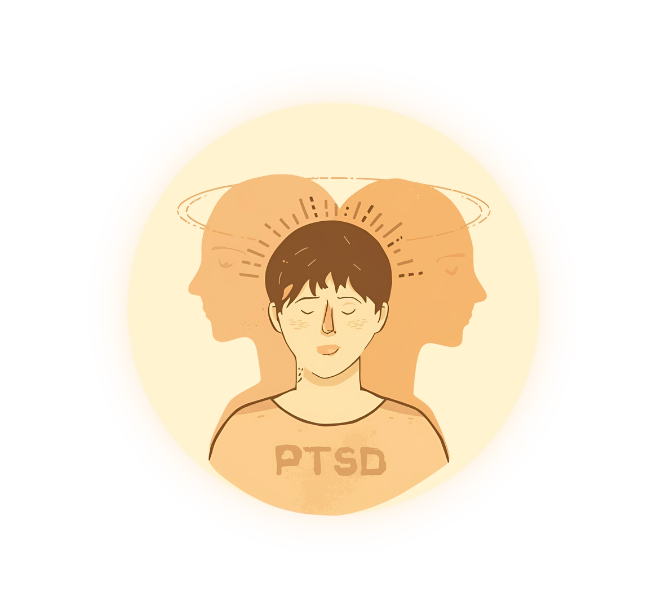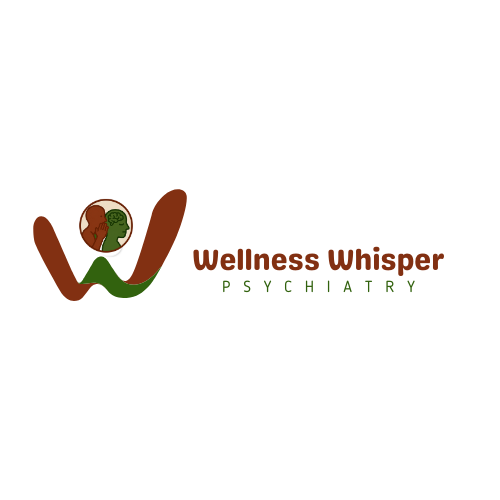PTSD (Post-Traumatic Stress Disorder)
What is PTSD?

PTSD occurs when the mind and body remain “stuck” in survival mode long after a traumatic event has passed. It is not a sign of weakness but a natural response to overwhelming stress that the nervous system has difficulty regulating.
Trauma that can lead to PTSD includes combat exposure, physical or sexual assault, serious accidents, natural disasters, or the sudden loss of a loved one. Not everyone who experiences trauma will develop PTSD, but for those who do, the condition can interfere with work, relationships, and overall well-being.
PTSD can affect people of all ages, and without treatment, symptoms may worsen over time. The good news is that recovery is possible with the right support.
Symptoms of PTSD
PTSD symptoms can vary widely, but they often fall into four main categories.
Flashbacks, nightmares, or intrusive memories of the traumatic event. These episodes can feel so vivid that the person feels they are reliving the trauma.
Efforts to avoid places, people, conversations, or activities that trigger memories of the trauma. This can lead to isolation and difficulty engaging in everyday life.
Being easily startled, feeling constantly “on guard,” or having trouble sleeping. Many individuals also experience irritability, anger outbursts, or difficulty concentrating.
Persistent feelings of guilt, shame, fear, or hopelessness. People may lose interest in activities they once enjoyed, feel detached from others, or struggle with self-blame.

Treatment Options at Wellness Whisper Psychiatry
Comprehensive Psychiatric Evaluation
A detailed assessment of symptoms, medical history, and lifestyle to provide an accurate diagnosis and individualized plan.
Medication Management
Careful prescribing and ongoing monitoring to improve focus, reduce hyperactivity, and support impulse control.
Psychotherapy Sessions
Evidence-based therapy to strengthen organization, coping strategies, and self-regulation skills.

